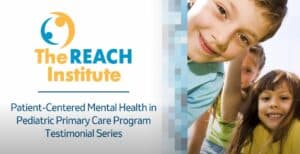One teen, 10 psychiatric drugs. This must stop!
- September 8, 2022
- The REACH Institute
- Child mental health, Medication
by Peter S. Jensen, MD, board chair and founder, The REACH Institute
On August 27, The New York Times ran an article by Matt Richtel titled “This Teen Was Prescribed 10 Psychiatric Drugs. She Is Not Alone.” It documents the practice of “polypharmacy”: prescribing multiple medications—most of which have not been tested either in children or in combination with one another—to manage young patients’ depression or anxiety.
That young patients are being prescribed potent cocktails of untested drugs is obviously wrong. The question is, how did we get to this point, and what can we do about it?
One clear problem is the nationwide shortage of mental health specialists, particularly child and adolescent psychiatrists (CAPs). The American Academy of Child and Adolescent Psychiatrists recommends a ratio of 47 CAPs to 100,000 children. Nationwide, the rate is 14 CAPs per 100,000 children. These professionals are concentrated in affluent urban areas on the coasts. Seventy percent of US counties have no CAP at all.
Furthermore, most CAPs are in solo practices, where they do not have ready access to other professionals who can address the needs of the whole child, such as psychotherapists, family therapists, speech and language therapists, social worker/case managers, school liaisons, and others.
With too little time to devote to each child who needs help and no access to an integrated system of support, it is no wonder that some CAPs fall back on what they have been uniquely trained to do: prescribe medications.
This complex problem needs a sustained, systematic, three-pronged solution.
Prong 1 is The REACH Institute model: train primary care providers to provide mental health care as part of a network including families, schools, psychotherapists, social workers, and other professionals. When these providers can care for children with common mental health conditions, the few CAPs in communities that have them can devote themselves to patients with complex or treatment-resistant conditions like those described in the Times article. Children in communities with no CAPs can get care that would not otherwise be available to them at all.
This solution is available now and is already making a difference in the lives of young people who suffer from depression, anxiety, and other mental health conditions. In our 15 years, REACH has trained about 5,700 primary care and mental health providers nationwide, many of them in underserved rural and urban communities.
Prong 2 is to change how mental health services are organized. Rather than functioning as solo practitioners, CAPs should lead teams of specialists in a comprehensive approach that helps children and families learn new skills and address underlying issues that contribute to mental health problems. Medications are only part of the solution. Children and families may also need academic support, talk therapy, occupational or language therapy, case management, and other supports. Pills do not create skills!
A requisite step to make the first two prongs work is transformation of the reimbursement structure. CAPs and primary care providers already struggle to be paid for the time comprehensive mental health care takes—time to work with families, schools, and an integrated team of professionals. CAPs in an integrated practice may spend half their time supervising and consulting with other team members. They must be fairly compensated for that time.
Prong 3 is data. Today, every young patient with a condition that doesn’t immediately respond to treatment is a guinea pig. Clinicians have no evidence to guide their choices when the first and second medications don’t work. The field needs rigorous clinical trials like the ones that have transformed treatment of leukemia and AIDS—research made possible by large federal investments.
These steps will cost time, money, and political will. The alternative is keeping children like the ones described in the Times on makeshift treatment regimens that, for all we know, do more harm than good—even as many thousands of other children go without mental health treatment at all.
Categories
- ADHD
- Anti-racism
- Anxiety
- Assessment & screening
- Autism
- Child mental health
- Coding
- Cognitive behavioral therapy
- College transition
- Culturally responsive
- Depression
- Eating disorders
- Foster care
- Grief
- High-risk children & youth
- LGBTQIA
- Medication
- Parents
- Patient communication
- Pediatric primary care
- School refusal
- Sleep disorders
- Suicide
- Trauma
- Show All Categories
Register for courses
“The REACH Institute Video Testimonial: Grizelda  ”
”
